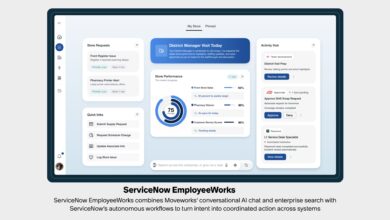Liquid AI Unveils LEAP and Apollo Focusing on Edge AI Deployment

Liquid AI, a foundation model company, has announced the release of its early-stage developer platform, Liquid Edge-AI Platform (LEAP) v0, designed for building and deploying AI on devices such as smartphones, laptops, wearables, drones, cars, and other local hardware, eliminating the need for cloud infrastructure. Alongside LEAP, the company also introduced Apollo, an updated, lightweight, iOS-native application powered by LEAP, which offers an interactive interface for experiencing private AI with Liquid’s latest models.
“Our research shows developers are frustrated by the complexity, feasibility, and privacy trade-offs of current edge AI solutions,” said Ramin Hasani, co-founder and CEO of Liquid AI. “LEAP is our answer—a deployment platform designed from the ground up to make powerful, efficient, and private edge AI easy and accessible. We’re also excited to give users the ability to test our new groundbreaking models through the iOS-native app Apollo”.
LEAP v0 is described as a breakthrough for edge AI, combining a small language model (SLM) library with a developer-first interface and a platform-agnostic toolchain. LEAP enables developers to deploy foundation models directly into their Android and iOS applications with as little as 10 lines of code. Liquid AI’s objective with this new platform is to simplify local model deployment for AI novices and full-stack app developers, not just inference engineers or AI experts.
To deliver a true private and on-device AI experience, Liquid AI acquired Apollo, originally designed by Aaron Ng, and has evolved it into an interactive interface for utilizing and testing small foundation models for private AI use cases. Apollo offers private, secure, low-latency AI interactions entirely on-device, demonstrating the potential when enterprises and developers are not limited by internet access, cloud requirements, or large models.
Both LEAP and Apollo now include access to Liquid AI’s next-generation Liquid Foundation Models (LFM2). These open-source small foundation models, announced last week, have reportedly set new records in speed, energy efficiency, and instruction-following performance within the edge model class. This integration makes these high-performance models immediately available for developers to test and build edge-native AI applications.
LFM2 is based on Liquid AI’s first-principles approach to model design. Unlike traditional transformer-based models, LFM2 is composed of structured, adaptive operators, which are designed for more efficient training, faster inference, and improved generalization, particularly in long-context or resource-constrained scenarios.
LEAP is available starting today at leap.liquid.ai, and Apollo can be downloaded from the iOS App Store, with an Android version expected in the coming weeks.




